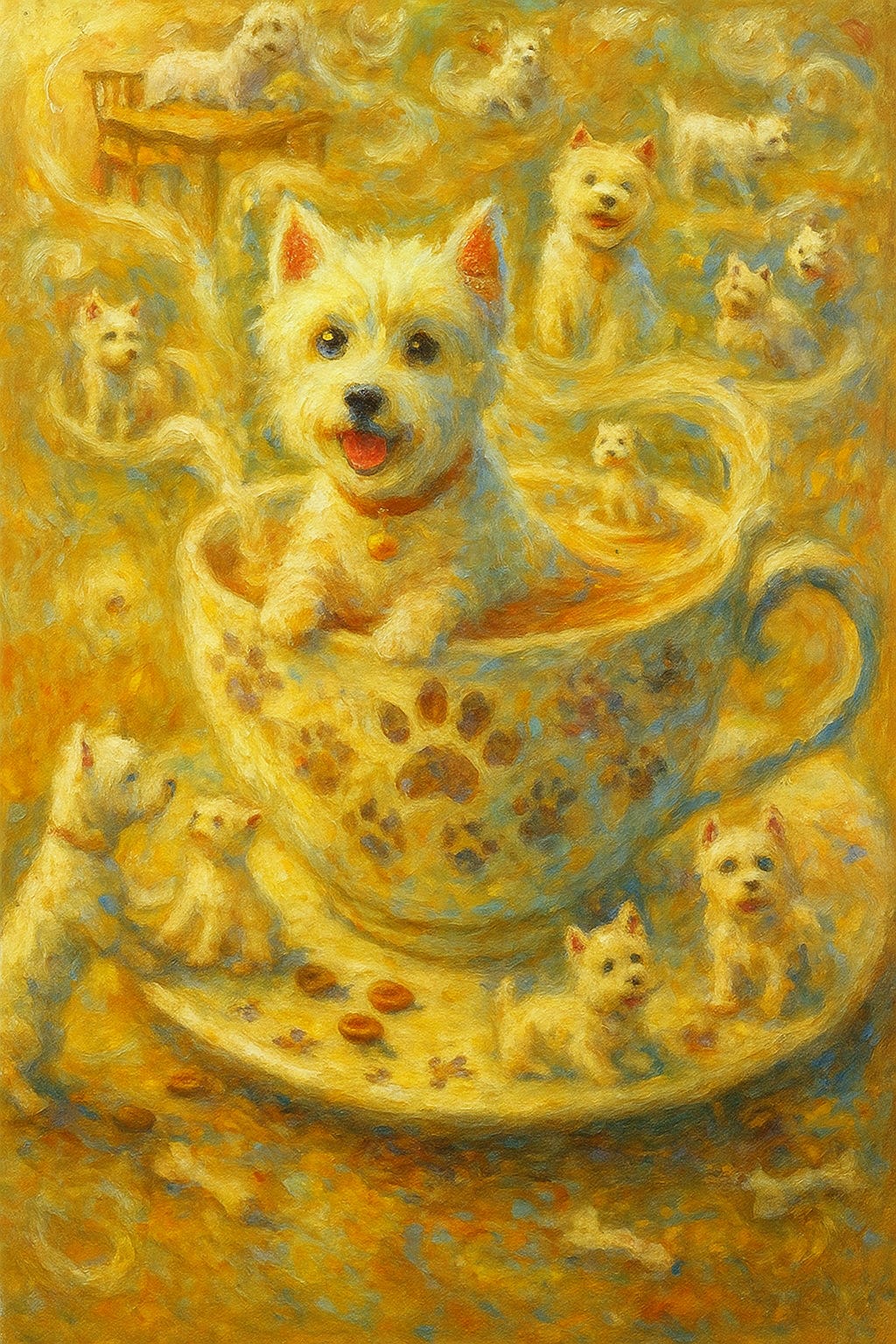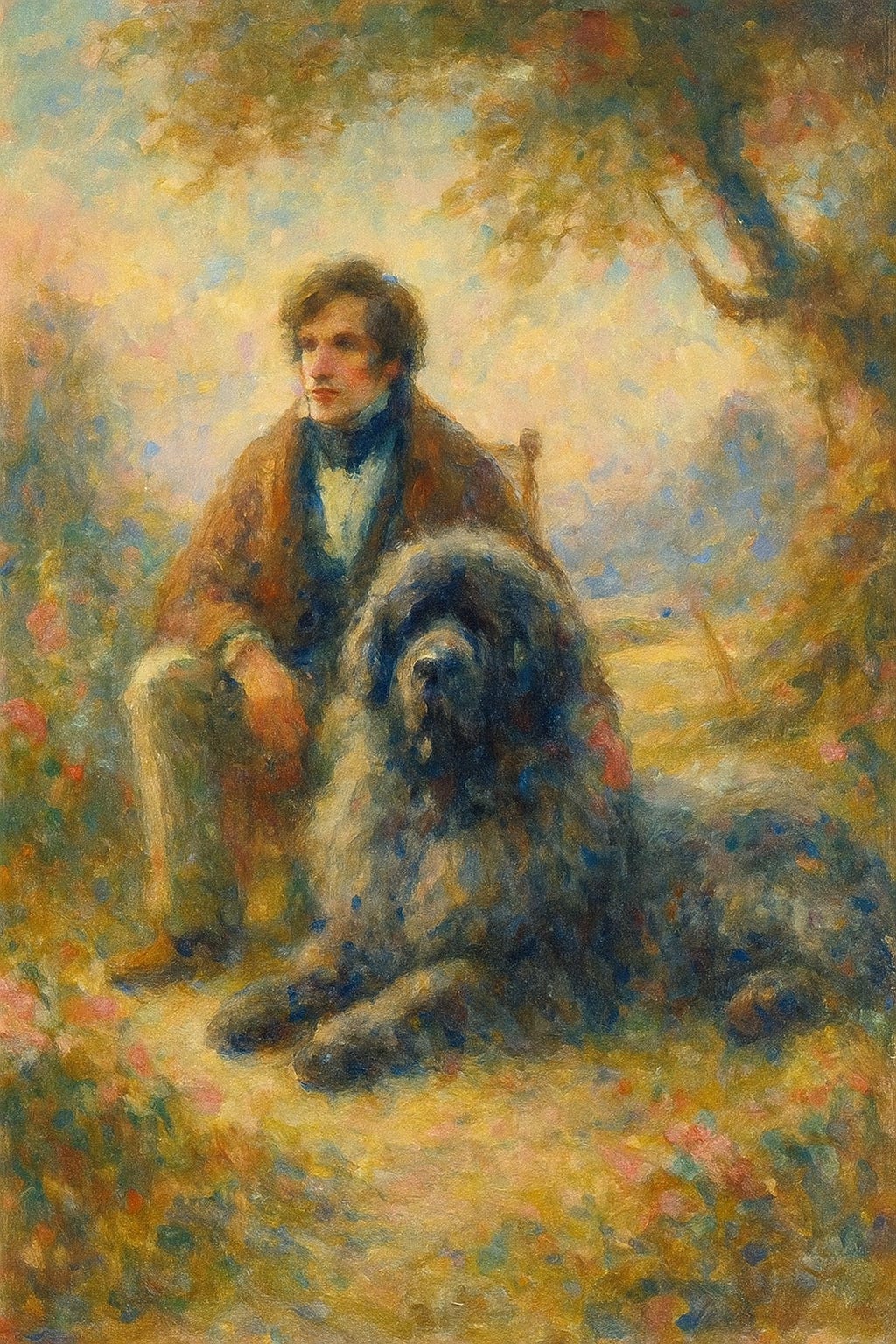The Opposite of Instagram is a Dog.
On Canine Devotion, Human Narcissism, and Why the Greatest Love of Your Life May Be Sleeping on Your Foot
If the idea of free speech still stirs anything other than a bureaucratic yawn in your spine, then subscribe, not for pity, but for principle. I’m not a couchbound pundit barking into the algorithm—I’m a professor, suspended and gagged by the sort of people who think disagreement is violence and truth is a hate crime. Click the link before some sanctimonious committee of legal eunuchs finds a way to neuter it.
Please subscribe to get at least three uncensored, impolite, fire-in-the-belly essays per week. Open comments, $6/month. Less than \ $4. Everyone says, “That’s just a cup of coffee.” Well, then order mine.
I love my dogs. Sometimes they jostle to see who can wedge themselves closer to me, as if proximity alone might open some cosmic portal of communion. It’s glorious, like being the sun and watching small planets pull themselves into your orbit, not for gravity, but for love.
Frankly, I have trouble trusting anyone who doesn’t like dogs. It’s not a quirk; it’s a character flaw. If you don’t love dogs, you’re either hiding something or missing something—possibly both. At best, you’re stuck on yellow. At worst, you’re red-lit for life.
The bond between human and dog is not just emotional—it’s mythic. It precedes civilisation. It feels as if dogs have been with us since the dawn of time, padding softly through the fog of prehistory, curled beside our fires long before we built temples or towers.
Lord Byron, that magnificent rake, wrote in 1808 of his beloved Newfoundland, Boatswain: beauty without vanity, strength without insolence, courage without ferocity—all the virtues of man, without his vices. One suspects he liked the dog far better than most of his acquaintances.
Dogs ask for nothing beyond your nearness. They don’t demand an analysis of last night’s argument. They don’t care what you binge on Netflix. They don’t mind if you’ve had a bad day or a bad year. In a transactional world where everything has a price and most affection comes with an invoice, here is a creature who licks your wounds and guards your toilet time, and still thinks you’re a deity in sweatpants.
Their greatest ambition? To be where you are. Whether it’s scratching at the bathroom door, curling up beside your desk, or exploding with joy when you return from a ten-minute store run like a conquering hero, their love is not just evident—it is elemental.
Of course, the cynics (those spiritual amputees) scoff. Dogs, they say, are just Pavlovian gluttons—slavering for kibble and programmed for dependency. But this interpretation, like most reductionist views of love, misses the point entirely.
Science offers a rather different view. A 2014 fMRI study showed that dogs process their owner’s scent in the caudate nucleus—the brain’s reward centre. Translation: your smell gives them pleasure—more pleasure than food. You, dear reader, are more thrilling to your dog than beef.
Further research confirms what dog people already know: dogs read our faces like poems. In a 2016 study, they distinguished happy from angry expressions, reacting with empathy to distress. This is not the behaviour of a selfish beast—it is the mark of a creature who feels with you.






